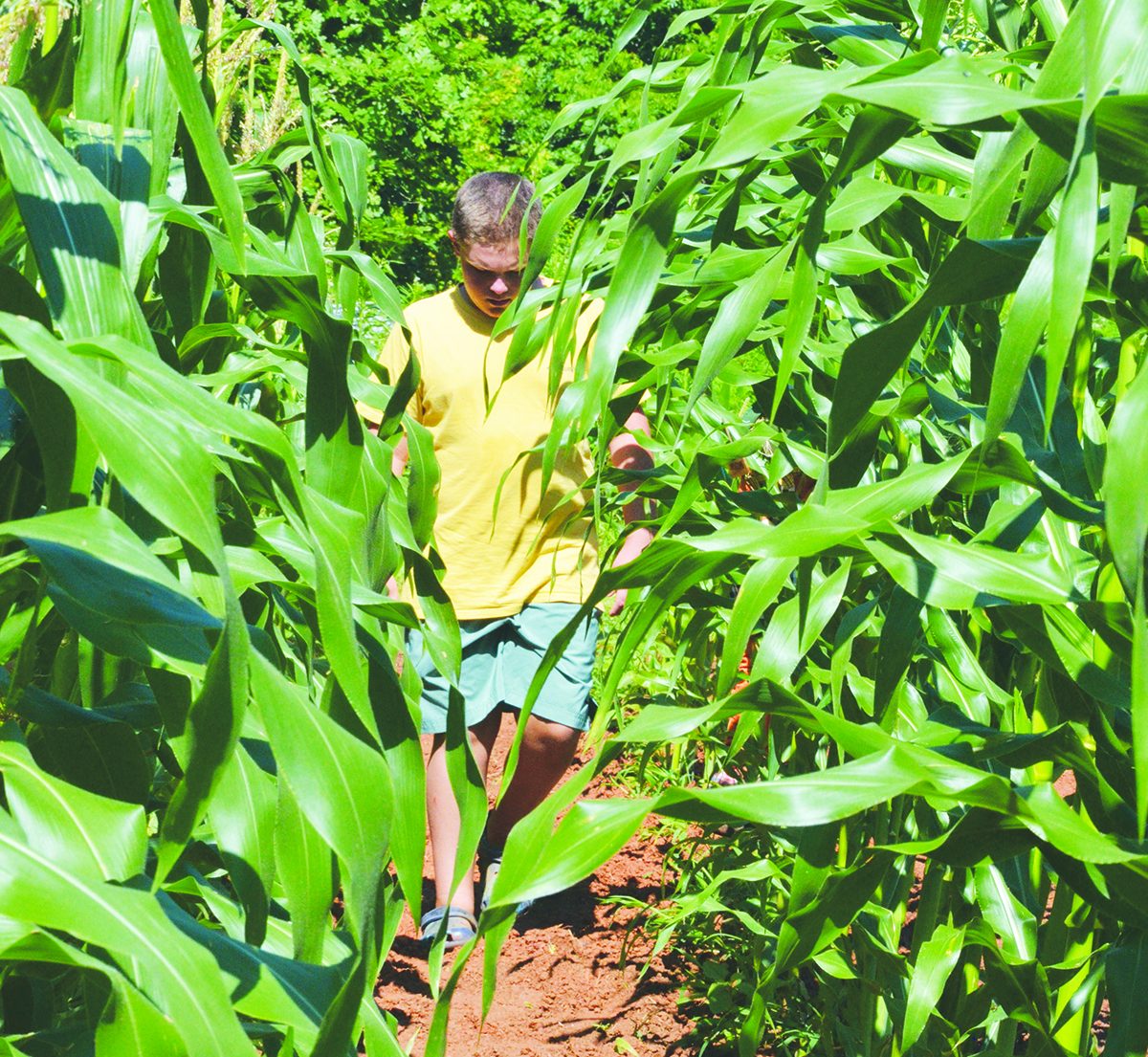The Literary Corner: Renegade Writers Guild
Published 9:41 am Thursday, August 17, 2017
“Bellingrath”
By Linda Barnette
The first time John and I traveled to Biloxi, Miss. we passed a sign that read “Bellingrath Gardens.” After I checked it out on the map, we realized it was close to Mobile, Ala. and only about an hour’s drive from Mobile to our destination. I will be forever grateful that we decided to take that particular detour.
Trending
Both the house and the gardens are stunning. There are 65 acres altogether, and many of them are planted in all kinds of flowers and shrubs, and the most spectacular of Southern trees, the live oaks near the river.
In the gardens, there are paved walkways and numbered signs showing visitors where to go next. We were there in late spring and saw many hundreds of thousands of azaleas, camellias as tall as trees, as well as lilies, tulips, daffodils, and many others. The most beautiful flowers to me were the roses in the rose garden—all kinds of pinks, reds, whites, yellows, and hybrids. In the middle of the garden is a fountain and a hothouse for all kinds of tropical plants.
The house itself is also lovely. It has 15 rooms, so it reminds one of Reynolda House more so than the Vanderbilt mansion. It is only a little more than 10,000 square feet. The exterior is covered with bricks from an old mansion in Mobile, and the architecture is much in the style of the Gulf Coast with a central courtyard, balconies, and covered galleries. What I liked most about the inside of the house were the “modern” 1935 bathrooms and kitchen with German silver countertops and sinks. Mrs. Bellingrath’s collection of silver, crystal, and china was also impressive. She had 16 different sets of china which she used for entertaining their many guests.
The house is on a little knoll right above the Fowl River. We went down to the river and boarded a large boat to tour the area along the river. I loved the array of wildlife there, such as ospreys nesting in some of the tall trees and herons flying through the air or standing at the edge of the water. There were also other fine homes along the river.
Beside the house, there is a small chapel where the family worshipped as well as the world-famous Deschamps Gallery of Boehm Porcelain. The Deschamps were friends of the Bellingraths and gave their priceless collection to them for the Bellingrath-Morse Foundation in the mid-1960’s. I especially loved all the porcelain pieces of various species of birds.
But more than a beautiful home and gardens, Bellingrath is a love story. Walter was the first Coca-Cola bottler in Mobile and became wealthy in that business. He married Bessie Morse, and they had no children, so everything he did was for her. She loved gardening and actually planted or supervised the planting of several things when the house and gardens were in progress. When she died unexpectedly in 1943 just a few short years after they had moved into the house, Walter was devastated. He wrote the following tribute to her on her tombstone at Magnolia Cemetery:
Trending
I shall always think of you
Wandering through a lovely garden,
Like that which you fashioned with your own hands.
Where flowers never fade and no cold winds of sorrow
Blight our hopes and plans—And on your face,
The peace of one whose whole life through
Walked with God.
Your loving husband.
We went to Bellingrath each time we visited the Gulf Coast and loved it in every season of the year. The loveliness of this place is forever etched in my mind’s eye, and sometimes I look through the postcards from the gift shop and think of Walter and Bessie and the beauty they created for all generations to enjoy.
“Mowing Musings”
By Julie Terry Cartner
The other week when I was on a mission trip, I ended up push mowing a lot of yards – most of nine to be exact. The weather was hot and muggy, the sky cloudless. With temperatures in the high 90s, you might think I drew the short straw, but the truth is, mowing those lawns gave me a great deal of time to reflect, and my thoughts naturally gravitated to my dad. Dad was a farmer, a gardener, and a lover of all growing things. He had definitive thoughts on how things should be done and naturally imparted his wisdom to me as well as the rest of my siblings. Dad loved his lawns and gardens, his home, Linden Farm, and his hometown, Orient, N.Y., and spent many dedicated hours keeping yards, gardens, monuments, the church yard, and the cemetery pristine. Nothing made him happier than to hear compliments about the beautiful landscapes of these places.
“Keep your lines straight and you’ll be able to follow them all year,” were some of the words of advice that Dad shared with me when I began helping him with the lawn mowing. The second statement, which was actually an addendum to the first was, “Look up. Find an object to focus on as you push the mower across the yard and aim straight for it. Then you will keep your lines straight.” He applied a similar premise to planting the garden. “Take the extra time; make the extra effort to make your garden exceptional.” The rows must be straight and must be wide enough to run a tiller between them. Therefore, you must consider how much each row would spread out – the difference between flowers such as zinnias and giant marigolds, and vine plants such as pumpkins and squash. To facilitate his straight rows in the garden, dad had two sticks with string, long enough to reach from one end of the garden to the other, wrapped around them. He would put one stick in the ground, then carefully unwind the string to the other end and put the other stick in the ground. Then he’d mark each end with rocks. Finally, taking the pointed corner of a hoe, Dad would draw a line from one end to the other. This process would continue until all the rows were marked. Dad was a firm proponent of the adage to do things right the first time.
At the time, I’m sure I only applied these lawn mowing and gardening rules to well, exactly that, mowing lawns and gardening, but as I mowed the lawns on the mission trip, my mind wandered back to Dad and all of the wise and wonderful things that he imparted to me. I realized that they applied to not only yards and gardens, but they were also lessons about life.
“Keep your lines straight.” Follow the truth. Do what’s right. Take care of each other. Take care of those who need help: the elderly, the disabled, those who are just down on their luck. Don’t focus on yourself. Be good to animals. How many times did he say about a dog or cat, “All he wants is a little kind word (and maybe a dog biscuit!).” Dad always carried dog biscuits in his pockets, and whenever he made visits to other farms, the dogs came running. They knew they’d get a little kind word and a dog biscuit. Take care of the earth. You’ll get out of it what you put into it. Work hard. Study hard. Make your own way based on your own merits.
“Look up.” Look forward. Move forward. Keep your eyes on the goal. There’s no point in looking back. If you make a mistake, when you turn around, you’ll be able to see it and fix it; that is, if you are looking up. Regrets over past mistakes should not control your life. Fix them, yes, but don’t spend the rest of your life bemoaning them. When you look up, you see what’s coming. Then you have time to adjust your line, your thinking, your choices or your goals to make things right. When you look up, you can see who is in front of you and have a chance to make a positive impact on his or her life. When you look down, all you see are your own feet.
“Take the extra time and make the extra effort.” Take pride in your work. Re-do the assignment if it’s messy or substandard. Mow back over the part of the lawn where the lines aren’t straight. Volunteer to go the extra mile. No matter what “collar” you wear – blue, white or pink – do the best you can do. No matter what tools you have to work with, do the best you can do. No matter what co-workers are doing, do the best you can do. When people put their best effort into anything, they can make a difference in the way others perceive them and their jobs, but more importantly, they can make a difference in how they perceive themselves and their jobs. Dad was a farmer and worked part time at a gas station, a blue-collar worker through and through, and was highly loved and respected by everyone who knew him. He took the extra time. He made the extra effort.
Mowing all the lawns didn’t allow anybody to move home sooner, it didn’t help the sheet rock go up any faster, and it didn’t help the doors and trim go on any straighter. However, it did take another thing away from the “to do” list that the homeowners faced, and when they came back to visit their homes and saw the progress, it allowed them to feel a little better about what they were seeing. And maybe, just maybe, they could feel a little better about their lives. And yes, Dad, I did keep my lines straight; I did look up, and I made an extra effort to make life a little better for someone else.
“The Fifteen Minute Rule”
By N.R. Tucker
Are you usually early or late?
This is a question I was asked recently, and it made me laugh. I’m always early. Being early was my father’s rule. His definition of late was less than fifteen minutes early. This applied to anything that had a scheduled start time.
As a teenager, this definition of late was maddening. I was the first to arrive anywhere. Sometimes I had to wait for a door to be unlocked, but I was never late. My friends teased me about my early arrival habit, but they also grew to depend on it, asking me to pick up this or that because they knew I would be there early. On Sunday mornings, Dad left without anyone who wasn’t ready when it was time to leave for church. Only once, was I not ready when Dad left. I ran the whole way, but I was in my seat when Sunday school started. Yes, I was on time but not according to Dad’s definition.
As an adult, I can recall the one time I was late to work. One morning, as I drove to my office in D. C., there was a wreck on a bridge (one I had to cross to get to my office). I was already on the bridge when the wreck occurred, so I sat there for nearly two hours, mostly irritated that I would be late to work.
Sometimes being early is not a good thing. For casual get-togethers, where the start time is not set in stone, I have to force myself to arrive “on time” which means the exact moment the festivity is to start. Basically, I try not to arrive fifteen minutes early.
Besides being early all the time, the fifteen-minute-early rule had another impact on my life. At work, I was famous for meetings that started on time. I didn’t wait for anyone. I didn’t waste the time of those who were on time by waiting for someone who was late. With each new job, it took folks a while to catch on, but eventually most showed up before I called the meeting to order.
Patience is a virtue I lack. To combat irritation, I learned to carry something to read or work on while I wait for others to arrive on time.
My kids were raised with the same fifteen-minute rule. Another generation trained to arrive early. My father would be proud.
“Pee Bee and Fur Cousin”
By Sandra Vance
Well, it is raining here at my home. But it is not cold, so I am not unhappy. I have not been able to tell my thoughts for a while as my mama has not been at her keyboard. I am still not sure what that is. But here we are today. Daddy and I have been fishing a little at the pond, and daddy caught some, and I played and ran around but not far because I was on the lead so that I could not run away too far. My fur cousin, Katy, was outside, and a storm came, and she was afraid! She started to try to find her home because she had just moved to a new home with her hoomans and was confused and could not remember she had a new home! So in the storm, she tried to go back to her old home which was far for her because she is a little bitty dog. Her family was so upset and looking, looking for her! They went up and down the roads and called my daddy, and he went everywhere, but they could not find Katy! Then, a good friend called and said another kind person had found her, and she was safe! We were all so happy! She got back to her home and went to sleep. I think she will not run away again because she knows this is her home now. Sometimes life is confusing. But right now, I think I will take a nap and then eat something good that my mama is cooking in the kitchen. Maybe it will be salmon again! I hope so. So, now, wait, what do I say when I am getting ready to take a nap in the daytime? Not nighty-night I think. Maybe just shut my eyes and…..zzz.
So sayeth PeeBee The Dog.





